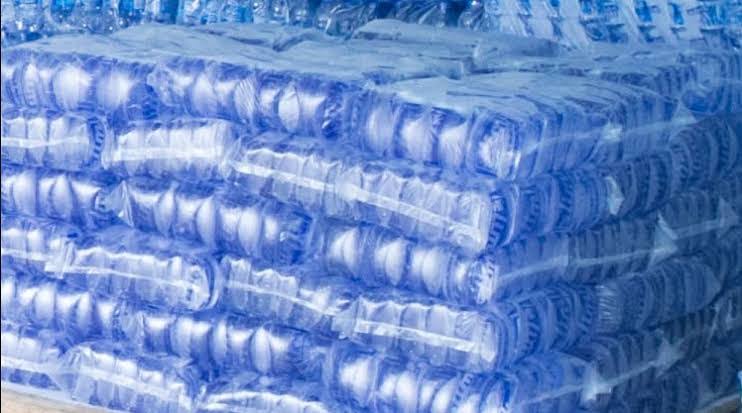Water sachets have become a common sight in many parts of the world, particularly in developing countries. They are often seen as a convenient and affordable solution to access clean drinking water.
However, while they may seem practical, the impact of water sachets on the environment raises significant concerns.
In this article, we’ll take a dive deep into the environmental, social, and economic impacts of water sachets, to help you understand their implications and why it matters.
What Are Water Sachets?
Water sachets are small plastic pouches filled with purified water. They are typically sold in various sizes and can be found in local markets, vending machines, and even roadside stands.
The convenience of these sachets makes them appealing to consumers, especially in areas where clean drinking water is scarce or where bottled water is too expensive.
However, this convenience comes at a cost—especially regarding the environment.
Environmental Impact of Water Sachets
1. Plastic Pollution:
One of the most significant environmental issues associated with water sachets is plastic pollution.
According to the United Nations Environment Programme (UNEP), millions of tons of plastic waste enter our oceans and landscapes each year.
Water sachets, often made from non-biodegradable plastics, contribute to this growing crisis. When these sachets are discarded improperly, they can take hundreds of years to decompose, polluting our soil and waterways.
2. Waste Management Challenges:
Many countries lack adequate waste management systems to handle the increasing volume of plastic waste, including water sachets. In urban areas, sachets can clog drainage systems, leading to flooding and other infrastructure issues.
3. Resource Depletion:
The production of water sachets not only consumes significant amounts of plastic but also contributes to the depletion of natural resources. Manufacturing these sachets requires energy and water, further straining already limited resources.
As the demand for single-use plastic products grows, so does the pressure on our planet’s resources.
Social Impact of Water Sachets
1. Accessibility vs. Affordability:
Water sachets are often marketed as a low-cost solution to drinking water scarcity. For many people, particularly in low-income areas, this accessibility can be a lifeline.
However, the health risks associated with consuming water from sachets that may not be properly sanitized or stored can outweigh the benefits.
Reports from the World Health Organization (WHO) highlight the risks of waterborne diseases linked to contaminated drinking water.
2. Health Implications:
Improper disposal of water sachets can also lead to health hazards. When these sachets litter the environment, they can become breeding grounds for pests and disease-carrying insects.
Additionally, if they are reused or improperly stored, they may harbor bacteria, further endangering public health.
Want to take control of your energy use and contribute your quota to reducing the excessive heat plaguing the planet?
Switch to solar power with our top-notch, affordable solar panels! Start saving on your bills and reduce your carbon footprint today.
It’s simple—just click here to see how easy it is to make the switch and join the solar revolution. Let’s power up for a greener tomorrow!
Economic Impact of Water Sachets
1. Local Economies:
While water sachets provide a low-cost option for consumers, their widespread use can undermine local economies.
Small vendors selling sachets often struggle to compete with larger companies that dominate the market. This can lead to reduced profits for local businesses and job losses in the long run.
2. Long-Term Costs:
While purchasing water sachets may be cheaper in the short term, the long-term environmental cleanup costs can be staggering.
Governments and local authorities often have to invest significant resources in waste management and environmental protection efforts. This shift of costs can ultimately affect taxpayers and hinder economic development.
What Can Be Done to Address the Issue?
1. Sustainable Alternatives:
So, what can be done to mitigate the environmental impact of water sachets? Exploring sustainable alternatives is very crucial.
Options like refillable water containers, water purification systems, and community-based water projects can provide more sustainable solutions to water access issues.
Organizations like Water.org and charity: water are working tirelessly to improve access to clean drinking water while promoting sustainable practices. Supporting such initiatives can help reduce the reliance on single-use plastics.
2. Awareness and Education:
Raising awareness about the impacts of water sachets is another critical step. Education campaigns can inform consumers about the environmental and health risks associated with these products, encouraging them to seek out more sustainable options.
Community workshops, social media campaigns, and school programs can all play a role in fostering a culture of sustainability.
Bottom Line
The impact of water sachets on the environment is complex and multifaceted. While they provide a convenient solution for accessing clean drinking water, their long-term consequences are far-reaching.
From contributing to plastic pollution to posing health risks, the issues surrounding water sachets are significant.
When you understand these impacts, you’ll be able to make informed choices about your water consumption and advocate for sustainable alternatives.
As consumers, we have the power to influence market trends and demand more responsible practices from businesses and governments.
Want to take control of your energy use and contribute your quota to reducing the excessive heat plaguing the planet?
Switch to solar power with our top-notch, affordable solar panels! Start saving on your bills and reduce your carbon footprint today.
It’s simple—just click here to see how easy it is to make the switch and join the solar revolution. Let’s power up for a greener tomorrow!
